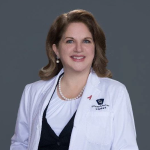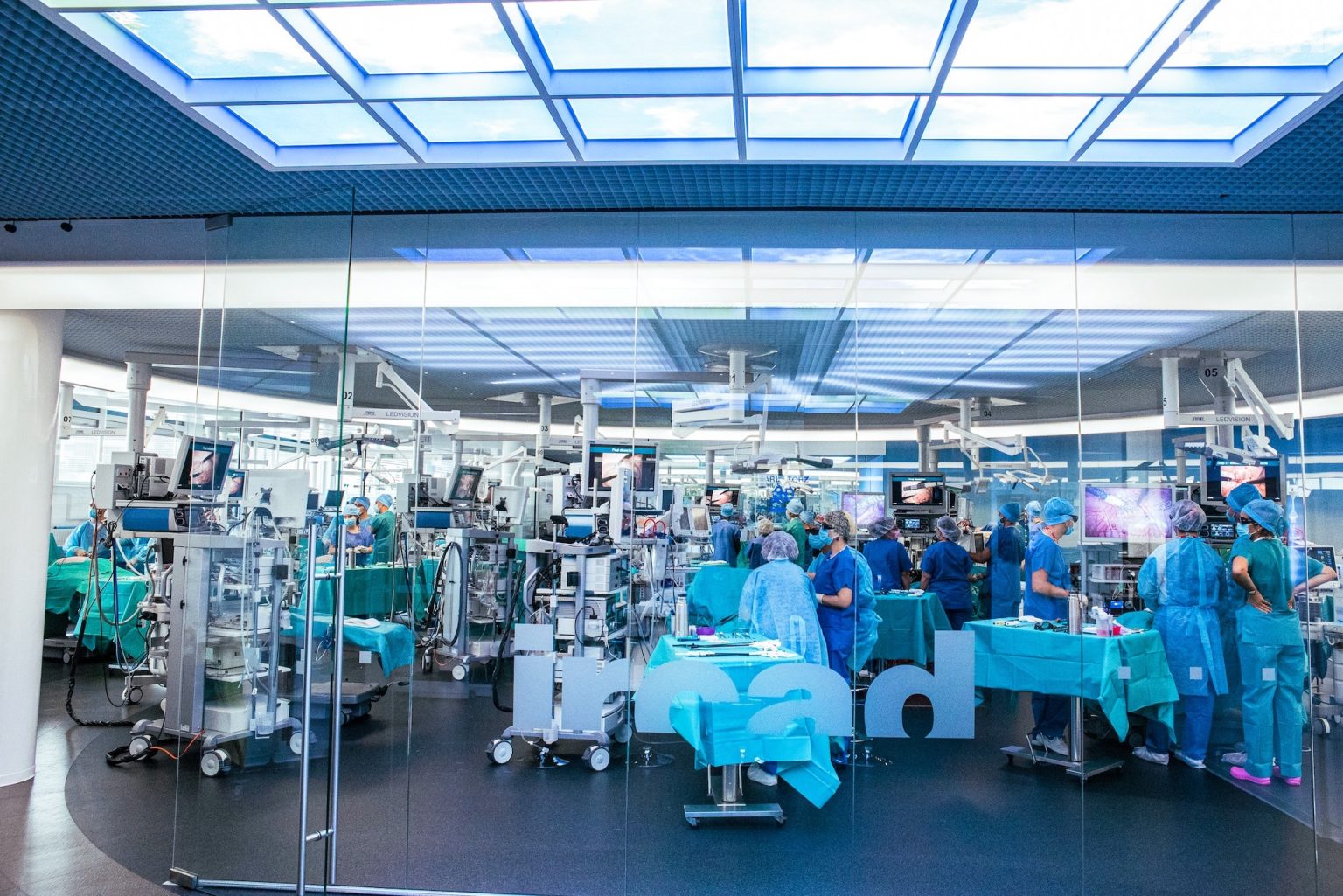
This month marks a major milestone for IRCAD, with the first anniversary of IRCAD Africa, based in Kigali, Rwanda. This promising and challenging project is the culmination of the enlightened vision of a remarkable President, as well as a resilient and dynamic country, and the result of close collaboration between our teams and local authorities. Rwanda, a country that has risen from the most difficult ordeals, is demonstrating exemplary determination to make innovation in healthcare accessible to all.
The objective of IRCAD Africa is to democratize minimally invasive surgery in Africa by providing local doctors with cutting-edge education and advanced technologies, which until now were rarely available in this region. As the first center of its kind on the continent, IRCAD Africa is a unique facility committed to improving access to surgical care, particularly for the poorest populations. Since October 2023, more than 400 surgeons from 27 African countries have already come for training.
We have had the honor of supporting this Institute from the very beginning, both financially and operationally. Thanks to the involvement of our team in France, our network of international experts and a regular transfer of skills, we continue to support this initiative, which echoes the values of IRCAD: innovation, shared expertise and excellence for the sake of patients.
In this newsletter, Dr. Michelle Smith, who spent ten years practicing in the United States as Professor of Surgery in California and Texas, the first Fellow of IRCAD France twenty years ago, and currently Managing Director of IRCAD Africa, looks back on a first year rich in challenges and successes. She shares her thoughts on the Institute’s vision, the objectives it has achieved, and the path it has paved for the democratization of innovative surgery accessible to the entire African continent.

Professor Jacques Marescaux
President and Founder of IRCAD

Dr Michelle Smith
General Director, IRCAD Africa
Dr Michelle Smith: A landmark study published in 2015 by the Lancet Commission on Global Surgery staggeringly illustrates the difficulty of access to surgery in sub-Saharan Africa, with a ratio of 0.5 surgeons, obstetricians and anesthesiologists per 100,000 Africans, whereas the study’s global recommendations relate to a ratio of 20/100,000 inhabitants. To improve access to healthcare, the Rwandan government launched the “4×4” reform a year ago, a visionary strategy aimed at quadrupling the number of healthcare professionals in 4 years, in particular by increasing training capacity for doctors and nurses through the opening of new schools. IRCAD Africa is perfectly in line with this approach: in addition to providing training in minimally invasive surgery for surgeons, we have begun to train medical students and nursing staff.
Without IRCAD France, there would be no IRCAD Africa. I’m not just talking about the creation of the training center, but also about the support we receive on a daily basis, for instance ensuring that we maintain all IRCAD France standards in the conduct of our training courses. We benefit from worldwide expertise, with 800 experts we can call on to give lectures, either in person or virtually. In addition to its financial support, IRCAD France also helps train our staff, so that we can be up and running very quickly, which would not otherwise have been possible. The experience, expertise and generosity of Professor Marescaux and his team have enabled our staff to travel to France and the French IRCAD team to come here for our training courses, which is essential to the success of IRCAD Africa. Close collaboration is also in place on a day-to-day basis, with regular exchanges allowing us to ask for advice and find solutions to problems, some of which have already been encountered by other IRCADs.
In this first year, we have already trained 360 surgeons from all over Africa, and we are well on the way to achieving our objective of training 1,000 surgeons in 1,000 days. But I have to say that we are also proud to have trained 20 medical students and 24 operating room nurses in the use of the laparoscopic equipment, and to have provided operating room nurse training to 24 nursing students.
These nonsurgical students really appreciated the training, and we feel that this is the way to increase access to surgery in Africa, by getting medical students interested in surgical careers at an early stage, and by training nursing students as well. It’s all very well to set up new medical schools, but it takes four years to complete a degree, and then you have to go on to specialized training. Yet the need in Africa is immense, and we need to find solutions that can already improve the local situation, which is the strength of our IRCAD training center on the African continent. When the surgeons explained to me that there weren’t enough surgeons and that it was the nurses who had to help them in the operating room, I realized that it was crucial to train the nursing staff too. All members of the medical team need to be able to develop their skills so that they can make the best use of every member of the team. So, this month, for the first time, we ran a course specifically for operating room nurses, which was a great success. This was the course with the widest geographical spread, with participants coming from countries as far afield as Pakistan and Egypt. By training nurses, we’ll be able to disseminate minimally invasive surgery more widely, as this is one way of overcoming the fears associated with changing techniques. Many participants went away saying that they would now be champions of the minimally invasive approach in their hospital, whereas they had previously been rather reticent.
I have to define the vision, set the objectives, and inspire the team. I have to be able to show where we’re going and the impact we’ll have. It’s extremely important for everyone to keep this vision in mind, so that we can resist the day-to-day stress that can become exhausting. For instance, I spend a lot of time looking for financial support, which is exciting but sometimes tedious. I then comfort myself by saying “We’ve trained 360 surgeons”, and this is what I remind my team to keep them focused on our objective and moving forward after energy-intensive training sessions: “we’re making a difference for patients in Africa”.
I also see a big part of my role as creating a team spirit which makes everyone feel valued, from the cleaning staff to the experimental lab manager. It’s a daily task that I strive to accomplish so that everyone feels included and appreciated, so that we can all deliver our best in the best possible working environment.
I must also say that I can’t thank Professor Marescaux enough for entrusting me with this role, because it doesn’t stop at the doors of the Institute. The women who come to our training courses see me as a leader, and it shows them that they can become one too. At present, only 16% of the surgeons we train are women. We need to encourage African women to take up scientific careers. I was privileged to be invited to speak at the first annual event of the Rwandan chapter of Women in Surgery, because it’s essential for African women to see women in the position I’m in, to see me as a kind of role model. Inspiring women to start and continue their medical studies is crucial to advancing access to healthcare in Africa. We need to support them. In 2018, Forbes magazine stated that women can be the answer to the need to increase the number of healthcare professionals in Africa.
In all fields, we want to democratize surgeon training so that there is no longer any disparity between low-income and high-income countries. Thanks to IRCAD Africa, the skill level of African surgeons has begun to rise, and we hope that gradually, a greater number of our African colleagues will be able to come and provide training as experts.
Developing our engineering team is also one of our top priorities. We are working directly with French engineers to develop ultrasound supported by artificial intelligence, to enable “automatic” diagnosis with a low level of skill. We are now at the stage of clinical trials. I would also like to increase the research and publication activities arising from the African surgical training we provide. We published our first abstract this week. Africa needs to be at the same level as the rest of the world when it comes to scientific research and literature.
About IRCAD
Founded in 1994 by Professor Jacques Marescaux, IRCAD is dedicated to training and research in minimally invasive surgery. The Strasbourg-based institute is internationally renowned for its excellent training courses, both face-to-face (nearly 8,000 surgeons trained annually in Strasbourg) and virtual, through the Websurg online university, which has over 500,000 members worldwide.
For more information, please visit https://www.ircad.com
For further information, to subscribe or unsubscribe, contact: FINN Partners – sante@finnpartners.com
Don’t miss the latest news from IRCAD.
Sign up here for our newsletters and communication mailings
to stay informed about us and our courses

Please note that the IRCAD administrative board and staff are closely monitoring the evolving COVID-19 situation, in full compliance with all applicable laws and regulations in France. The health, safety, and well-being of our participants, experts and staff are our top priority!
Despite the current context, the IRCAD stands firmly by your side to help you acquire knowledge and skills. Come and join us !
We would like to draw your attention that the « Vaccine Pass » is now mandatory in France since end of January 2022 and replaces the former « Health Pass » to access places that are open to the public, such as cinemas, museums, cafés and restaurants, hotels as well as the IRCAD Institute which welcomes participants in the framework of its courses and seminars. Thus, a PCR test without vaccination is no longer sufficient to take part in our courses.
The vaccine pass includes a proof of the following (one of the 3 items is sufficient):
Further information about the new vaccine pass can be found at :
We very much hope to be able to count on your kind understanding of those rules which have been set by the French Government and which our Institute is required to apply